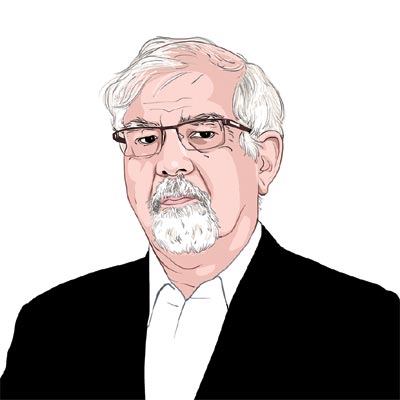Opinion Reframing our frames
India desperately needs a new States Reorganisation Commission and a new constitution.
The much awaited Telangana report was released on January 6. While we debate the merits of whether the state of Andhra Pradesh needs to be bifurcated,we should take time out and reconsider the larger issues raised by the report. Two issues dominate: first,that there is a crying need for a States Reorganisation Commission,Mark II; and second,that it is time we considered the writing of a new constitution.
This requires a mindset change among our leaders. It is more than sixty years since the Republic was formed,and a lot has happened in the interim. Consider some of the seismic changes which could not have been imagined in 1980,let alone in 1950. The World War had ended,communism was in the ascendancy and India gained its independence. It is not a coincidence that most of the people still clinging to age-old ideas are old old age being a necessary condition for having an antiquated mindset. Indias per capita income was 6.6 per cent of the US in 1950; today the relative income has doubled to 12.6 per cent of the US level (in PPP terms).
But this is not the only change. In social indicators,especially education,India has made rapid strides over the last decade. As well documented by the ASER studies,education,especially among the poor,has improved enormously. It no longer is the case that Sita doesnt go to school; we now have a developed country problem Sita goes to school but cannot read! Even more advances have been made in girls education relative to boys; girls are now just as well educated as boys and even get higher grades. If you dont believe me,ask any khap panchayat representative,or better still,ask Nitish Kumar.
So let us accept that India has changed enormously and is now set differently for its second innings. So what can responsible Indian leadership do to set the course for the rest of this century? There are three major decisions. First,we need to view India as a very different economy,and polity,than that faced by the founding fathers. Which means we are not a nation of the poor; we are now a nation of middle class,with the poor aspiring to be middle class. We are not a nation of illiterates anymore; and we are more than involved in the democratic process.
This mindset change can set the stage for implementing two big ticket political items. The first is the setting up of the second States Reorganisation Commission. The first was led by Justice Fazal Ali in 1953,and as an intellectual counter to the report,Dr Ambedkar penned Thoughts on linguistic states. In this volume,he correctly anticipated aspects of the Telangana problem and reminded all that there was more to the sub-division of states than mere language for example,size. Dr Ambedkar was pioneering,distinguished,and perhaps the most underestimated leader among the founding fathers. It is not a coincidence that the underestimation arises from the fact that Dr. Ambedkar was a Dalit but that is again a pointer to how India has changed. Today,the minorities (Dalits,STs,Muslims and women) have a significantly improved status,and the future should mean further progress.
Several of the debates,and recommendations,in Ambedkars report are followed up in the Telangana report. Language cannot be the only criterion. Ambedkar suggested that north Indian linguistic states were too large; for example,UP needed to be divided into three separate states. Now that our democracy has matured,it is an appropriate time to set guidelines for a further sub-division of states. There have to be principles involved,not just the ad hoc nature of the ambitions of some politicians. What these principles are economic,cultural,political and administrative should be the mandate of the new blue-ribbon commission.
The second big task for India is the writing of a new constitution. If anything has outlived its usefulness,and purpose,it is our constitution. The rot set in almost a decade after the writing; Dr Ambedkar,the lead author,had indicated that reservation policy for the disadvantaged Dalits was not desirable in perpetuity and even suggested that this constitutional provision be reviewed after a decade. Instead,our politicians went the opposite way. More and more job and education reservations have meant that half of the population is believed to be disadvantaged with some states even raising the bar to more than two-thirds reservations for the minorities (sic).
Is this constitutional? You bet it is in India. And in case the liberati (no typo,the term refers to the in-your-face liberal glitterati) thinks that only the Shiv Sena are bad sorts with their demand for local hiring,they should look at their liberal cousins in Andhra Pradesh. These folks have had a ditto copy of the Shiv Sena rules called the Mulki rules: region-specific reservations in certain categories of jobs.
There are several other quirks in our constitution. The fact that arrests can be made at will,with little regard for individual rights,the core of any decent constitution. This core is all but absent in ours. Most of what our dated constitution regards as constitutional is the right of the state with Indira Gandhi even going to the extent of changing the constitution to reflect her personal ideology that India is a socialist state. If we had an individual-rights oriented constitution,then Binayak Sen probably couldnt be arrested and Niira Radias phones could not have been tapped.
The constitution is the problem. Amendment after amendment has meant that India holds the record for the largest amount of amendments in the shortest period of time 94 amendments in total,or once every six months. Think about it we have changed the constitution faster than most people change their toothbrush!
The writer is Chairman of Oxus Investments,an emerging market advisory and fund management firm





